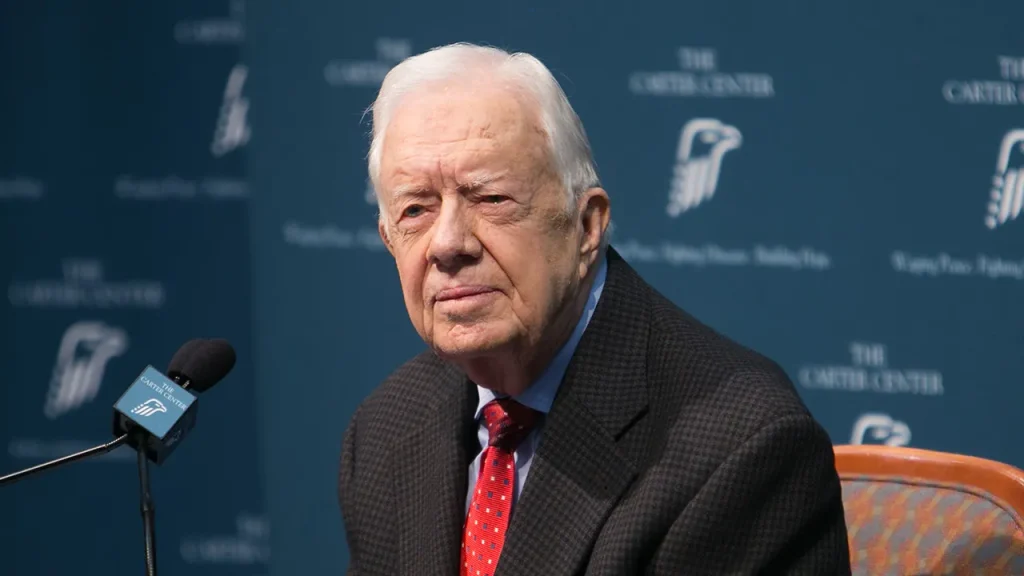A Nation Mourns: The Life and Legacy of Jimmy Carter
Former President Jimmy Carter, a figure of profound influence on both the American political landscape and global humanitarian efforts, passed away on Sunday, January 7th, 2024, at the remarkable age of 100. His death has prompted an outpouring of grief and tributes from across the political spectrum, recognizing his unwavering dedication to peace, human rights, and public service, both during his presidency and in the decades that followed. The nation will come together to honor Carter’s remarkable life and legacy with a series of planned memorials and services, culminating in a state funeral scheduled for January 9th in Washington, D.C.
In recognition of Carter’s profound impact, President Biden has declared January 9th a National Day of Mourning, urging Americans to gather in their respective places of worship to pay homage to the 39th president. The day will serve as a collective moment of reflection on Carter’s contributions to the nation and the world. President Biden also ordered all American flags to fly at half-staff for 30 days, a visible symbol of national respect and mourning. The day of the funeral will be marked by solemn ceremonies, including a state funeral at the Washington National Cathedral, followed by a private interment in Carter’s hometown of Plains, Georgia.
Carter’s journey to the presidency began in Plains, Georgia, where his deep-rooted values were shaped by his family and community. After serving in the Navy, he returned to Plains to take over the family peanut farm, demonstrating his commitment to hard work and entrepreneurial spirit. His political career began in the Georgia state legislature and governorship, where he established a reputation for honesty and integrity. Elected as the 39th president in 1976, Carter arrived in Washington as a relative outsider, promising a new era of ethical leadership and a focus on human rights.
Carter’s presidency, while only a single term, left an indelible mark on both domestic and foreign policy. He established the Department of Energy and the Department of Education, signifying a focus on crucial national issues. His commitment to human rights was central to his foreign policy, leading to the successful Camp David Accords, a historic peace agreement between Israel and Egypt. He also emphasized the importance of democracy and human rights in U.S. relations with other countries, often challenging traditional Cold War policies.
After leaving office in 1981, Carter dedicated his life to humanitarian work, establishing The Carter Center, a non-profit organization committed to advancing human rights and alleviating suffering around the globe. Through the Carter Center, he played a critical role in eradicating Guinea worm disease, promoting fair elections in emerging democracies, and resolving conflicts in various regions. His tireless efforts earned him the Nobel Peace Prize in 2002, a testament to his lifelong commitment to peace and human rights. He continued his work with Habitat for Humanity, building homes for those in need, a testament to his hands-on approach to service.
Carter’s life was one of profound dedication to his family, his country, and the world. His marriage to Rosalynn Carter, which spanned over 76 years, was a partnership founded on shared values and a commitment to making a difference. Their dedication to service, both individually and together, has left an enduring legacy. His children and grandchildren carry forward his commitment to public service and human rights, ensuring that his values continue to inspire future generations. Carter’s life serves as a powerful reminder of the impact a single individual can have on the world through dedication, integrity, and a deep commitment to serving others. His passing marks the end of an era, but his legacy will continue to inspire hope and action for years to come.

